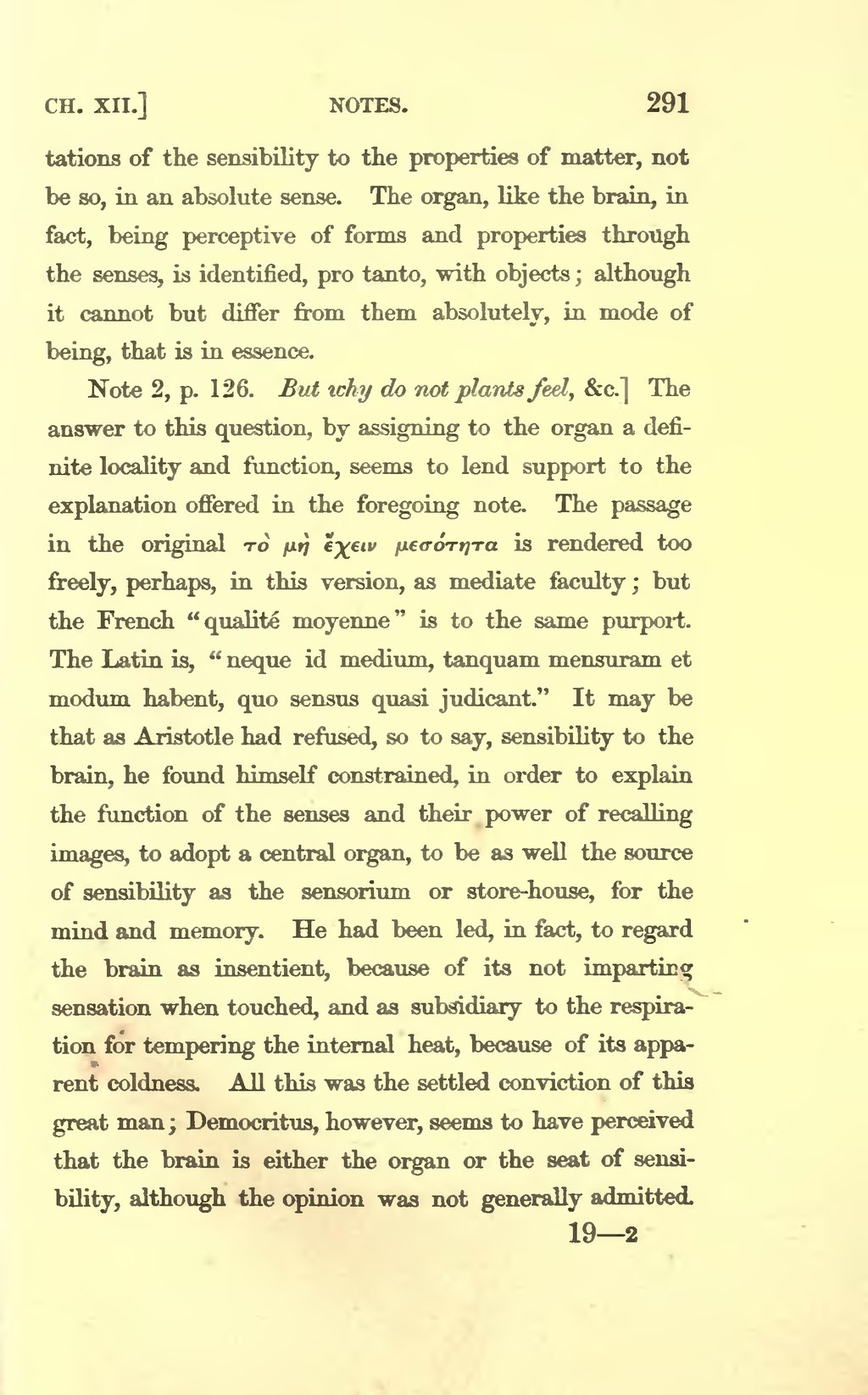tations of the sensibility to the properties of matter, not be so, in an absolute sense. The organ, like the brain, in fact, being perceptive of forms and properties through the senses, is identified, pro tanto, with objects; although it cannot but differ from them absolutely, in mode of being, that is in essence.
Note 2, p. 126. But why do not plants feel, &c.] The
answer to this question, by assigning to the organ a defi-
nite locality and function, seems to lend support to the
explanation offered in the foregoing note. The passage
in the original τὸ μὴ ἔχειν μεσότητα is rendered too
freely, perhaps, in this version, as mediate faculty; but
the French "qualité moyenne" is to the same purport.
The Latin is, "neque id medium, tanquam mensuram et
modum habent, quo sensus quasi judicant." It may be
that as Aristotle had refused, so to say, sensibility to the
brain, he found himself constrained, in order to explain
the function of the senses and their power of recalling
images, to adopt a central organ, to be as well the source
of sensibility as the sensorium or store-house, for the
mind and memory. He had been led, in fact, to regard
the brain as insentient, because of its not imparting
sensation when touched, and as subsidiary to the respira-
tion for tempering the internal heat, because of its appa-
rent coldness. All this was the settled conviction of this
great man; Democritus, however, seems to have perceived
that the brain is either the organ or the seat of sensi-
bility, although the opinion was not generally admitted.
